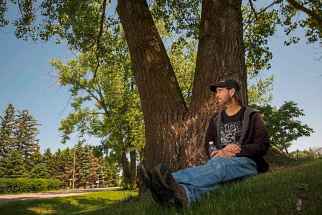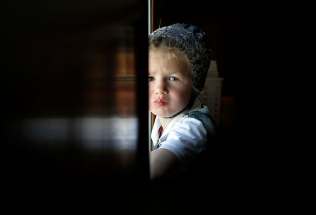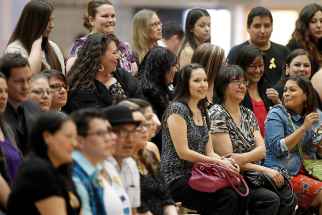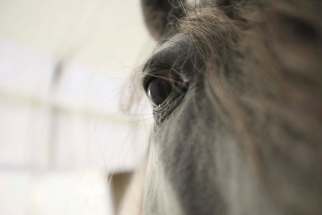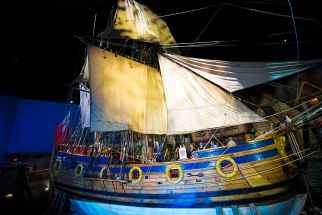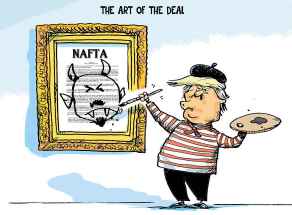Putting reconciliation into action Four steps everyone can take
Read this article for free:
or
Already have an account? Log in here »
To continue reading, please subscribe:
Monthly Digital Subscription
$0 for the first 4 weeks*
- Enjoy unlimited reading on winnipegfreepress.com
- Read the E-Edition, our digital replica newspaper
- Access News Break, our award-winning app
- Play interactive puzzles
*No charge for 4 weeks then price increases to the regular rate of $19.00 plus GST every four weeks. Offer available to new and qualified returning subscribers only. Cancel any time.
Monthly Digital Subscription
$4.75/week*
- Enjoy unlimited reading on winnipegfreepress.com
- Read the E-Edition, our digital replica newspaper
- Access News Break, our award-winning app
- Play interactive puzzles
*Billed as $19 plus GST every four weeks. Cancel any time.
To continue reading, please subscribe:
Add Free Press access to your Brandon Sun subscription for only an additional
$1 for the first 4 weeks*
*Your next subscription payment will increase by $1.00 and you will be charged $16.99 plus GST for four weeks. After four weeks, your payment will increase to $23.99 plus GST every four weeks.
Read unlimited articles for free today:
or
Already have an account? Log in here »
Hey there, time traveller!
This article was published 08/06/2018 (2743 days ago), so information in it may no longer be current.
It’s the No. 1 question I get asked; it doesn’t matter where, what topic or what forum.
“Niigaan, I know there are big issues such as the Indian Act and the Truth and Reconciliation Commission, but I don’t work in government. What can I do in my life, right now, to produce change?”
It’s easy, I say: face reality.
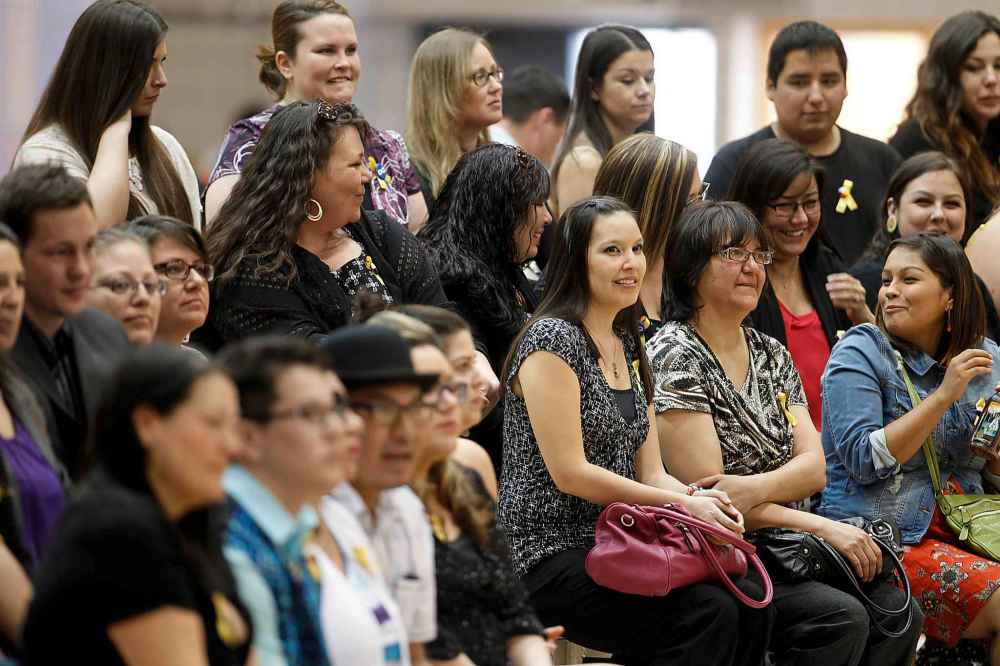
Reality tells us that Indigenous peoples make up around 20 per cent of Winnipeg, and that’s just in legally and self-recognized identities.
If I shook family trees in our city, an Indigenous person would probably fall out of each one. An ancestor doesn’t make a person Indigenous, of course. Being an Indigenous person is about how you act and your relationships — not about blood.
The rest of you are married to, live beside, or have identities fostered by Indigenous peoples. Just look on your driver’s licence and count the Indigenous names you have been given: Kanata, Manitowapow, Winnipec.
Every single person in our community has been given gifts by Indigenous peoples. The reality is that Indigenous peoples built our home.
Look around: Pembina Highway, Portage Avenue, and Main Street are Indigenous trading routes, Métis followed the bison in St. James and Indigenous stories and laws were spread on Manitoba’s first internet: the Red River.
Indigenous peoples made this place, and others are now a part of it.
Today our fastest-growing and youngest community is Indigenous peoples, and they are shaping Winnipeg. At the University of Manitoba, we have 2,400 self-declared Indigenous peoples. Approximately 12 per cent of students at the University of Winnipeg are self-declared First Nations, Inuit or Métis peoples. Red River College has about 1,500.
That’s around 5,000-plus nurses, lawyers, dentists, social workers, teachers, and hundreds of other professions across the public and private sector. And it will keep growing.
Who do you think will be taking care of all of us, paying the taxes, and leading the political parties in the future?
It’s like we will be returning to the 18th century, when Indigenous peoples such as Chief Peguis and Black Robe mentored and cared for this entire community.
We must invest in Indigenous youth, the most critical and crucial segment of our economy, because ultimately it is an investment in everyone.
But we have other huge, and unnecessary, obstacles. Dozens of exploitative and divisive policies, legacies, and practices, built mostly on ignorance, come quickly to mind.
Ignorance is the most expensive obstacle Canada faces. It costs billions of dollars every year in court battles, violence, and “awareness training.”
So, reality is really the easy part, while change is much tougher.
It comes in four steps: listen, learn, commit and act.
Listen to Indigenous peoples when they bravely articulate their own and their family’s experiences about the last 150 years.
Listen to the human sides of these stories. The first time I saw this happen on a wide scale was in August 2014, when thousands of Winnipeggers mourned the death of slain 15-year-old Tina Fontaine at The Forks.
Listen to the silence when Indigenous peoples are shut out of rooms when decisions are made about their lives.
Listen to the possibilities when this doesn’t happen.
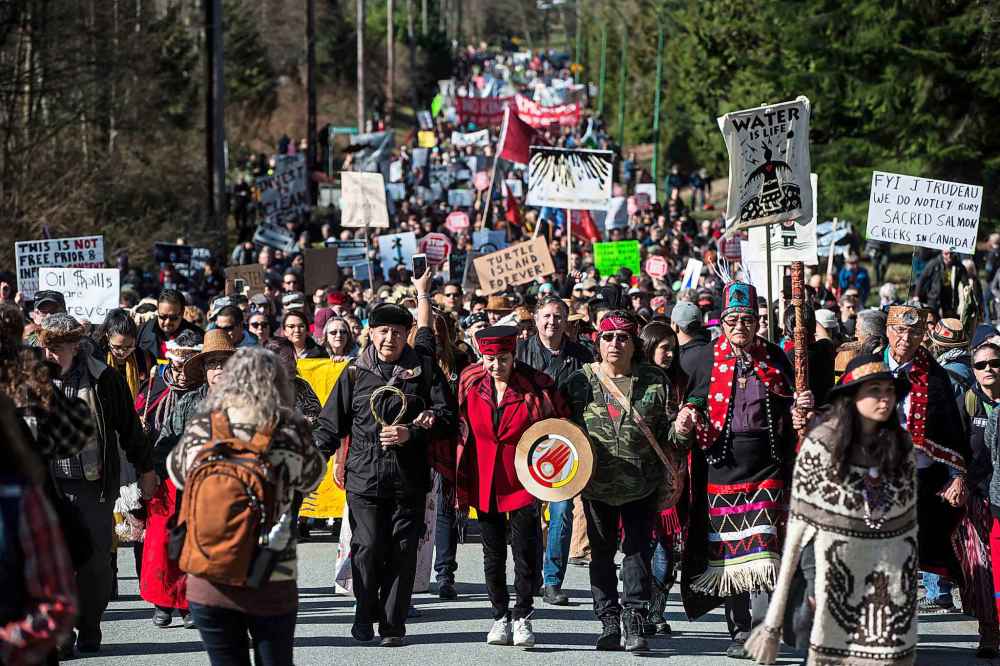
We all need to listen more. Really listen. Indigenous peoples, too.
Next comes learning. Learn how Indigenous peoples are not the “problems” or the “stains” or the “burden” of this country. Learn how violence, poverty, and racism are outcomes of Canada’s legislative attempts to control Indigenous lives.
Learn from the incredible voices of Indigenous writers. I used to be able to list all of the books Indigenous peoples had published. Now I hear of a new book nearly every day.
Learn about privilege. Learn what it looks like for genders, sexualities, and classes. Learn how privilege creates imbalances and opportunities one is not even aware of.
Learn that all voices matter. Learn how to step aside or, better yet, stand beside, those who simply want an opportunity to live, love, and thrive.
Now comes the really tough part: commitment.
Commit to moral, social, cultural, legal, and economic change. Justice. Commit to standing up to ignorance every time you encounter it.
Commit to voting for leaders who can actually articulate what reconciliation looks like and — most important of all — have a plan to do it. Then, refuse to accept when attempts are made to renege on promises for things such as pipelines and payoffs.
Commit to talking about relationships with Indigenous peoples in the community, the home, and the workplace. I know a group of seniors who do this during every visit to Tim Hortons.
Read the treaties. Realize they are about the future, not the past. Recognize that they are not just words, but a way of life.
Then you take the bravest step of all. You act.
Fulfil this vision.
Don’t just be an ally, but live as one.
That’s how you produce change.
niigaan.sinclair@freepress.mb.ca

Niigaan Sinclair is Anishinaabe and is a columnist at the Winnipeg Free Press.
Our newsroom depends on a growing audience of readers to power our journalism. If you are not a paid reader, please consider becoming a subscriber.
Our newsroom depends on its audience of readers to power our journalism. Thank you for your support.

![CP
]](https://dev.winnipegfreepress.com/wp-content/uploads/sites/2/2022/04/Mba_Conflict_Report_201804241.jpg?w=100)
